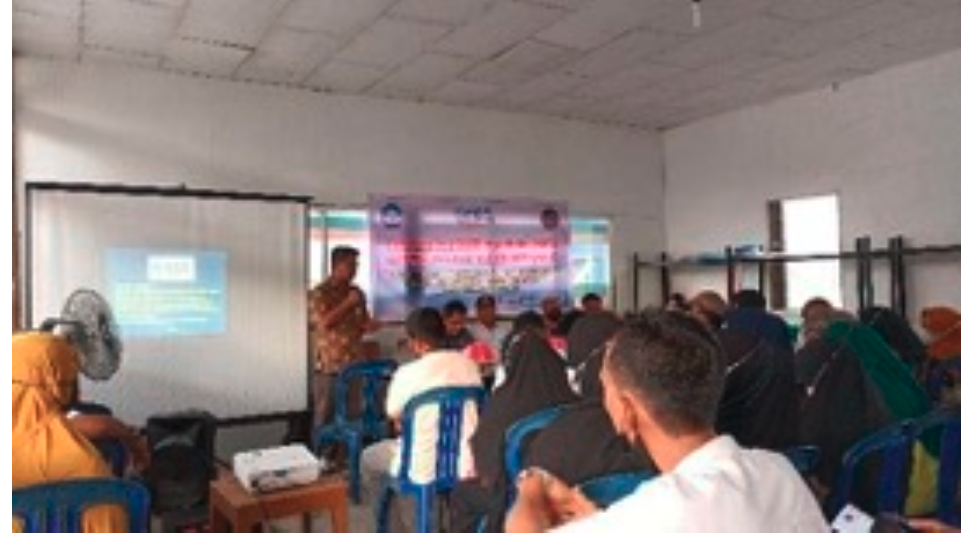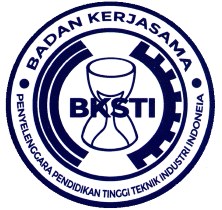Empowerment of Village Owned Enterprises through E-Commerce Information Technology in Increasing the Economy of Sipodeceng Village Communities
DOI:
https://doi.org/10.12928/spekta.v4i2.7129Keywords:
Information Technology, E-Commerce, VOEs, EmpowermentAbstract
Background: This activity aims to increase the role of Bumdes Padaidi Sipodeceng through e-commerce information technology based on the Bumdes Sipodeceng Store application in improving the economy of the people of Sipodeceng Village.
Contribution: This activity improves the welfare of the people of Sipodeceng Village through e-commerce information technology.
Method: The method of this activity includes Socialization of the implementation of activities, Counseling by explaining the e-commerce information technology marketing model (BUMDES Sipodeceng Store), training and mentoring the use of information technology for BUMDES partner groups, carrying out assistance, as well as monitoring and evaluation.
Results: Training and mentoring activities based on pre-test and post-test data analysis have positive implications for 3 parameters: knowledge from 42.14 to 89.14%, skills from 35.9% to 90.12%, and motivation from 63.2% to 93 .2%. From these data, an analysis of the effectiveness of these 3 parameters is carried out, the values of which are knowledge at 81%, skills at 85%, and motivation at 79%. These three numbers indicate that community service activities are effective because the value is above 50%.
Conclusion: From these activities, it can be concluded that e-commerce information technology at BUMDES Padaidi Sipodeceng is still very much needed to increase the role of BUMDES in community empowerment.
References
A. Mursalat and M. R. R. Razak, “Pengembangan Produktivitas Bumdes Melalui Sistem Informasi E-Commerce Sebagai Sarana Pemasaran Produk Desa Timoreng Panua Kabupaten Sidenreng Rappang, Sulawesi Selatan,” Diseminasi Jurnal Pengabdian Kepada Masyarakat, vol. 3, no. 2, pp. 45–51, 2021, https://doi.org/10.33830/diseminasiabdimas.v3i2.1327
S. Istiqomah, Y. Fajaryanti, and A. Suka Dewi, “Pemasaran Berbasis Online Pada Ukm Produk Camilan,” Diseminasi Jurnal Pengabdian Kepada Masyarakat, vol. 2, no. 1, pp. 5–18, 2020, https://doi.org/10.33830/diseminasiabdimas.v2i1.750
D. A. M. Savitri, P. S. Nugroho, and D. Kurniasari, “Peningkatan Kapasitas Teknis Desa Pengembangan Ekonomi Lokal Melalui BUMDes ‘GEMAR’ Desa Parakan, Kendal,” Budimas Jurnal Pengabdian Masyarakat, vol. 3, no. 1, 2021, https://doi.org/10.29040/budimas.v3i1.1633
A. Karim, Peningkatan Ekonomi Desa Melalui Badan Usaha Milik Desa (BUMDes). 2019. [Online]. Available: https://www.academia.edu/download/62440051/EBOOK-BUMDes20200322-77446-186t2rg.pdf
A. Mustanir, M. R. R. Razak, and A. Mursalat, “Pemberdayaan Badan Usaha Milik Desa Dengan Teknologi Informasi Dimasa Pandemi Covid-19 Dalam Pelayanan Publik Yang Less Contact,” JMM (Jurnal Masy. Mandiri), vol. 5, no. 5, pp. 2246–2258, 2021, https://doi.org/10.31764/jmm.v5i5.5250.
J. Ahmad, S. Muliani, and Hardianti, “Millennial generation and digitization: Implementation of higher education functions,” International Journal Of Scientific & Technology Research, vol. 9, no. 4, pp. 1168–1172, 2020, http://www.ijstr.org/final-print/apr2020/Millennial-Generation-And-Digitization-Implementation-Of-Higher-Education-Functions.pdf.
M. R. R. Razak and B. Sofyan, “Role of village-owned enterprises in farming community empowerment,” International Journal of Advanced Science and Technology, vol. 29, no. 6s, pp. 684–691, 2020, https://doi.org/10.31219/osf.io/5ycva
Fitria, “Pemberdayaan Ekonomi Masyarakat Melalui Badan Usaha Milik Desa (BUMDes),” Adl Islamic Economic: Jurnal Kajian Ekonomi Islam, vol. 1, no. 1, pp. 13–28, 2020, https://doi.org/10.56644/adl.v1i1.4
A. Mursalat and M. Irwan, “Pembuatan Pakan Berbasis Bahan Lokal dan Saluran Distribusi Melalui E-Commerce Pada Usaha Peternakan Ayam Petelur Desa Teppo Kabupaten Sidenreng Rappang,” Madaniya, vol. 2, no. 2, pp. 191–196, 2021, https://doi.org/10.53696/27214834.76
H. W. Tanjung, "Menjadi wirausahawan bagi mahasiswa Alterntif mengatasi pengangguran terdidik," J. Pengabdi. Kpd. Masy., vol. 21, no. 82, pp. 1-10, 2015. https://doi.org/10.24198/adbispreneur.v7i2.39332
S. Subagio, “Perancangan E-Commerce Hasil Produk BUMDES Desa N8 Labuhanbatu Dalam Meningkatkan Nilai Ekonomis bagi Ibu-ibu Rumah Tangga Desa N8,” Jurnal Informasi Komputer Logika, vol. 1, no. 3, 2019, http://ojs.logika.ac.id/index.php/jikl/article/view/44.
D. Nasrullah, A. Hidayatullah, S. U. WP, “Menjadi wirausahawan bagi mahasiswa Alterntif mengatasi pengangguran terdidik,” Aksiologiya: Jurnal Pengabdian Kepada Masyarakat, vol. 1, no. 1, pp. 11–17, 2017, https://doi.org/10.30651/aks.v1i1.301.
M. Padil, M. Miftahusyai’an, and G. P. Mulyoto, “Pendampingan Pemasaran Digital Hasil Usaha Badan Usaha Milik Desa ‘Selo Angon Makmur’ dalam Pemberdayaan Masyarakat Terdampak Pandemi Covid-19,” Engagement Jurnal Pengabdian Kepada Masyarakat, vol. 5, no. 1, pp. 250–267, 2021, https://doi.org/10.29062/engagement.v5i1.511
J. M. Pinariya, D. Forceila, L. Ivana, and A. Yunia, “Sosialisasi dan Edukasi Digital Marketing pada Komunitas BGBJ Penerapan Project Based Learning untuk Meningkatkan di Bantar Gebang Menghadapi Era 4.0,” Aksiologiya: Jurnal Pengabdian Kepada Masyarakat, vol. 5, no. 2, pp. 191–202, 2021, https://doi.org/10.30651/aks.v5i2.6148.
B. Rizal.“ Pengembangan Modul Digital Interaktif dalam Pembelajaran Statistika Terapan menggunakan Learning Management System Berbasis Moodle di Masa Pandemi Covid 19,” Indonesian Journal of Learning Education and Counseling, vol. 4, no. 1, pp. 75–85, 2021, https://doi.org/10.31960/ijolec.v4i1.1299
N. Ningsih, L. Nalefo, and I. A. Wunawarsih, “Efektivitas Metode Kelompok Terhadap Peningkatan Pengetahuan Wanita Tani Dalam Pemanfaatan Lahan Pekarangan Di Desa Kalimas Kecamatan Kaledupa Kabupaten Wakatobi,” Jurnal Ilmiah Membangun Desa dan Pertanian, vol. 4, no. 2, p. 53, 2019, http://dx.doi.org/10.33772/jimdp.v4i2.6659.
G. D. Larasdiputra, P. B. Anggiriawan, P. G. Kawisana, and I. Gst. Putra, “The role of village owned enterprises in increasing the rural economy,” International Journal of Advances in Social and Economics, vol. 1, no. 2, pp. 60–66, 2019, https://doi.org/10.33122/ijase.v1i2.41.
B. Arifin et al., “Village Fund, village-owned-enterprises, and employment: Evidence from Indonesia,” Journal of Rural Studies, vol. 79, pp. 382–394, 2020, https://doi.org/10.1016/j.jrurstud.2020.08.052
Suartini, R. Saafaat, I. Permadi, Istislam, “Comparison of village-owned enterprises in Indonesia and Township and village enterprises in China,” Journal of Law, Policy and Globalization, vol. 91, no. 3, pp. 169–176, 2019, https://doi.org/10.7176/JLPG/91-21.
W. Wu, Y. Zhang and Y. Fan, "ICT Empowers the Formation and Development of Rural E-Commerce in China," IEEE Access, vol. 8, pp. 135264-135283, 2020, https://doi.org/10.1109/ACCESS.2020.3011593.

Downloads
Published
How to Cite
Issue
Section
License
Copyright (c) 2023 Aksal Mursalat, Muhammad Rais Rahmat Razak, Kamaruddin Sellang, Rifni Nikmat Syarifuddin, Muhammad Rohady Ramadhan, Muh. Irwan, Reza Asra, Muhammad Bibin, Sunandar Said, Andi Riska Andreani, Adam Latif, Sofyan B, Syaiful Bahri Syam, Muhammad Aksan

This work is licensed under a Creative Commons Attribution-ShareAlike 4.0 International License.
Authors who publish with SPEKTA (Jurnal Pengabdian Kepada Masyarakat: Teknologi dan Aplikasi) agree to the following terms:
- Authors retain copyright and grant the journal the right of first publication with the work simultaneously licensed under a Creative Commons Attribution License (CC BY-SA 4.0) that allows others to share the work with an acknowledgment of the work's authorship and initial publication in this journal.
- Authors are able to enter into separate, additional contractual arrangements for the non-exclusive distribution of the journal's published version of the work (e.g., post it to an institutional repository or publish it in a book), with an acknowledgment of its initial publication in this journal.
- Authors are permitted and encouraged to post their work online (e.g., in institutional repositories or on their website) prior to and during the submission process, as it can lead to productive exchanges, as well as earlier and greater citation of published work.

This work is licensed under a Creative Commons Attribution-ShareAlike 4.0 International License.












